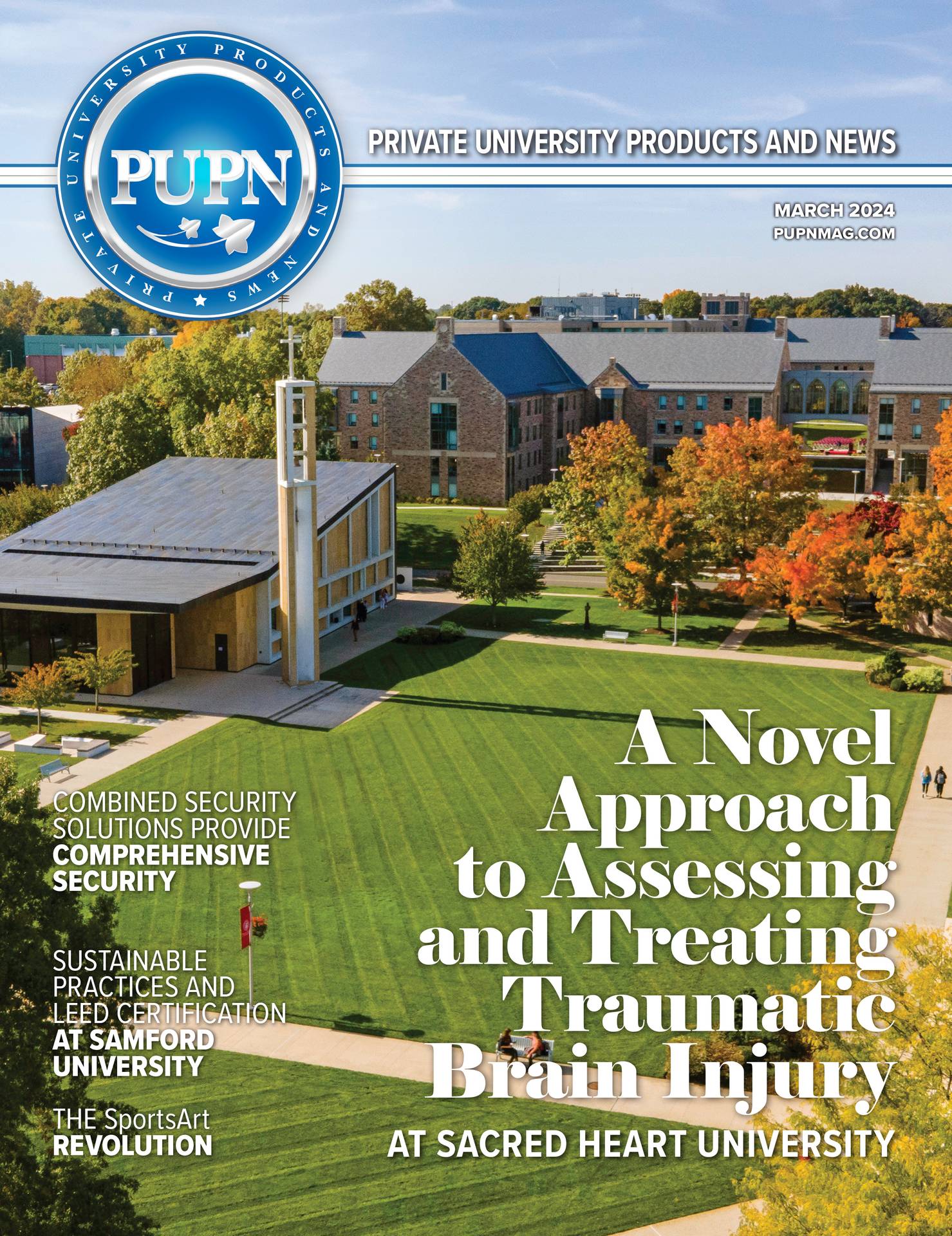Though most campuses seem to recognize a need for some type of diversity work or diversity-inclusion work that might be channeled through an office, Lowe Swift knew from the start that she hoped for something broader and deeper for Vassar Students. As a result, the EPI became campus-wide, integrative work.
The Birth of EPI
In the fall of 2016, Lowe Swift was working with Jon Chenette, then Interim President of Vassar, in developing effective mechanism to better understand challenges for low-income, first-generation, or historically underrepresented groups on their campus.
Pulling together feedback from administrators, faculty, and students, they became co-investigators on a Mellon Foundation proposal to create a welcoming learning community for all students. The funding of that proposal led to the launch of the EPI, with Lowe Swift and Jon Chenette at the helm, while in close collaboration with President Elizabeth H. Bradley and now William Hoynes, the current Dean of the Faculty.
The Limitations of the Semantics and the System
According to Lowe Swift, terms and goals with familiar semantics of “diversity work” can be limiting in that diversity and/or inclusion work often becomes associated with one person or one office—usually a person of color—and prescribed groups who are then charged with developing a more diverse or inclusive campus.
While many colleges have found a solution in hiring or naming a Chief Diversity Officer, the Vassar faculty was uncomfortable with that option because, as Lowe Swift explains, “A single individual can’t be responsive to every social challenge or identity.”
Furthermore, if the responsibility is placed on one person or even one office, there may be too much vulnerability for an individual to address senior administration about potential problems. Even at Vassar, a place where questioning power is built into the fabric of the community, Lowe Swift explains that one person carrying the voice of many to the administration just isn’t ideal. Often, diversity pushes, in a traditional sense, can lead colleges to focus on something tangible, what can be easily enumerated, and what—in essence—can be a quick fix.
Increasing numbers of underrepresented groups on campus, for example, is a necessary first step, but this numbers game can give a purely quantitative focus to diversity work, and Lowe Swift wants something more qualitative and comprehensive, a system to move the College “forward in all areas.” Though Vassar College started a need-blind admissions policy several years ago, Lowe Swift notes that those moves don’t help with profiling, microaggressions, or incidences of bias.
Culture shift is also necessary, and the whole learning community can benefit from more comprehensive change. Another underlying problem with the concept of one person or one office as the answer for diversity or inclusion issues is that an individual is supposed to help one student through a problem—it’s “very individuated and transactional.” She wanted to move this process “from transactional to transformational.”
Civic Participation and Engaging All Abilities
In short, there was a gap between the desire to make campus more inclusive and what students were perceiving about that desire based on the isolated and siloed nature of the remedies. With the EPI work, students have a sense of belonging on campus; they have mentors who aren’t even their professors. Holistically, it’s about civic participation. When people are given the chance to change and alter something that needs addressing, it goes beyond just identifying what isn’t working and forces the question, “What would you like to see instead?”
She wanted the College to ask itself, “What does it mean when you change campus to draw on diversity as a resource and seek to incorporate the variety of human experiences that are represented in our learning community?” The same concepts apply to Vassar’s Summer learning program, Summer Immersion in the Liberal Arts, in fact.
Summer “bridge” programs among colleges and universities are not uncommon, but when she first started studying the various models, she felt that most operated on a deficit-based model. Princeton was doing the closest to what Lowe Swift imagines for Vassar—to focus on what students are bringing from their home communities and helping connect that knowledge to their educational experience at Vassar.
There were fourteen students in the first pilot, and nine of those took on leadership roles for their first full semester after the summer program. This approach fits perfectly with Vassar’s goal of supporting the abilities and gifts students bring with them, as they take control of their own journeys and pathways to learning and growing.
Diversity Work by Community, Not Committee
Knowing that hierarchies and divisions cut down conversations, they needed to determine how to best be inclusive inside this “academically rigorous community”—how they could avoid diversity work by committee to do “diversity work by community.” Thus, when the chance was offered by the Mellon Foundation to build an exciting, new learning community, and an early suggestion was an eight-person committee, she knew that traditional answer wasn’t the right one for Vassar.
She wanted everyone on campus to be offered a chance to explore the questions of belonging and thriving, so everyone on campus was invited to participate. In response to the mass email that offered a chance to join a non-identity based interest group, over 300 people—students, staff, and faculty—wanted to participate, and they were able to accommodate about 120 of them to begin the work. Currently, there are seven of these working groups, which have no limit to group number— people select the topic they are most passionate about—so some larger groups have 18-20 members; they meet every other week to make plans, have discussions, and then put those plans in motion.
Whatever group they join, all members are learning more about Conflict Resolution, specifically what can be learned as we move against the impulse to shut out any opinions we find objectionable. “It’s very difficult to come up with an idea everyone agrees with,” she notes, so these groups offer a holistic, comprehensive way of thinking through difficult questions. They aren’t inviting conflict, just naming it and working through it. They learn techniques and strategies for these conversations, with one student calling EPI work a version of “Radical Hospitality.”
For instance, in one of the larger groups of 18, the majority was on board with an idea and ready to move forward. A lone sophomore, who was still figuring out how to speak in a group that included tenured faculty members, had another opinion. In order to have a meaningful discussion, without an undue burden on one student, the group facilitator asked everyone to shift to the view the sophomore held as they worked through the other side.
As a result, everyone in the group became actively engaged in fully understanding and articulating one student’s position. Lowe Swift explains, “It modeled how to engage, rather than alienate someone for having a different perspective.” The project ultimately shifted based on what they all learned as they worked through a position they had not considered. Lowe Swift explains, “Recognizing connections and community, where others might see difference and distance is at the center of what we aspire to do.”
Creating Mechanisms for Dynamism
The learning groups emphasize multi-constituency, collaborative learning over individual learning, and involving people who wouldn’t normally come in contact in important conversations. In these groups, they are developing logistical skills, time management skills, and learning to use each other as resources towards deeper understanding and more effective collaboration. Since no individual can do the work of inclusion, Lowe Swift notes that working groups can offer a “moments of centralization for consistency” but “with mechanisms for dynamism and allowing for adaptation with every new group of students coming in.”
Jonathan Kahn, Professor of Religion and Chair of the Inclusive Pedagogy working group, notes that Lowe Swift’s version of leadership “embodies the EPI program.” Explaining how she holds everything together and is tireless in her focus, he adds, “She works like no one else.”
EPI isn’t just about meetings, Kahn explains; this is important work done piece by piece, taking people from their silos, and building productive conversations between students, faculty, staff, and administration. He adds that one especially fun part of this is “not thinking of curriculum as a zero-sum game.” They are reimagining the Teaching and Learning Resource Center in the group, for instance, looking to build something from the ground up. This work reminds everyone there that pedagogy is about more than authoritative grasp of the course material. Instead, Kahn argues, “Pedagogy is about mutual understanding.”
Being Transported
Sophia Kapur is a sophomore now, but met Lowe Swift her first week on campus, after Lowe Swift invited her for tea. While Kapur explains Lowe Swift is undoubtedly the “driving force of EPI,” she “doesn’t want any of the focus on her.” Ultimately, Kapur considers joining a working group as one of the best decisions she made since coming to Vassar for several reasons, in part for providing the opportunity to know Lowe Swift. “She has this incredible warmth to her,” Kapur explains. “It feels like you were transported to life outside of campus.” Kapur adds, “I can’t imagine being here without knowing her.”
Shreya Suresh is an Anthropology Major who met Lowe Swift at the beginning of her freshman year. Suresh recalls, “I was nervous, didn’t know a lot of folks, but she invited me into conversation with warmth and love, a gesture I will never forget. The warmth and love have translated into every conversation I have had with her ever since, be it about the purpose of ethnography or about home-sickness.”
A year into her studies now, Suresh explains that Lowe Swift has remained a constant presence, guiding her through academic frustrations, helping her sort through moments she disagreed with other EPI members, and providing invaluable assistance in this transition phase of her life. “Especially as an anthropology major,” she adds, “I admire the way she allows all the discipline to intermingle with the multitude of possibilities to foster connection and empathy on campus. With regards to EPI, she has put in so much dedication and energy she has given to every concern, query or moment of confusion that has popped up to make sure the members of the initiative embody what it is fostering to create.”
Alumnae Willa Vincitore, part of the Climate Assessment working group and former co-chair of this group, praises Lowe Swift for being “a skilled facilitator of difficult conversations.” Vincitore explains that Lowe Swift has a talent for bringing people together and organizing communities, as well as an innate ability to guide people through difficult, complex intellectual and emotional work. Vincitore adds, “I have deeply appreciated the way she has gently mentored me as I travel on my journey into active, anti-racist work and self-reflection.”
An Innovative and Fearless Leader
As a Qualitative Research and Curriculum Engagement Associate with the EPI, Henry Molina has known Lowe Swift in a variety of contexts— first as her student. Among the joys of working with Lowe Swift, he explains, are her vigor and her innovative, fearless approach.
She’s connected people in a way that had not been done before on campus and shown what is possible to achieve together; she encourages them to take their differences and turn them into meaningful, exciting work—all while learning about relationship building and problem solving. By bringing together faculty and students to address the same issues head-on, she asks people to step out of normal roles, in order to “tackle the problems before the problems tackle us.”
When Jackson Kroopf graduated from Vassar, Lowe Swift was his mentor and long-time professor. An accomplished filmmaker, Kroopf returned to Vassar last spring to film a piece on EPI; the Film Department hired him to teach for a year, and he will be filming about EPI throughout that period. He returned to work with Lowe Swift, he states, because he wanted to help create a space in the film to speak to what happens as they actually go through the work rather than just providing “lip service.”
While watching people work through differences is exciting and inspiriting, Kroopf also acknowledges the difficulties, particularly in accepting the new structure. He believes people in positions of power rarely want to relinquish any of that power, but this project creates “decentralized, collaborative, non-hierarchical work.”
Note: Dr. Lowe-Swift insists that the work of EPI would not be possible without the EPI team, working group chairs, and more than one hundred people on campus who are dedicated to making an inclusive community.










